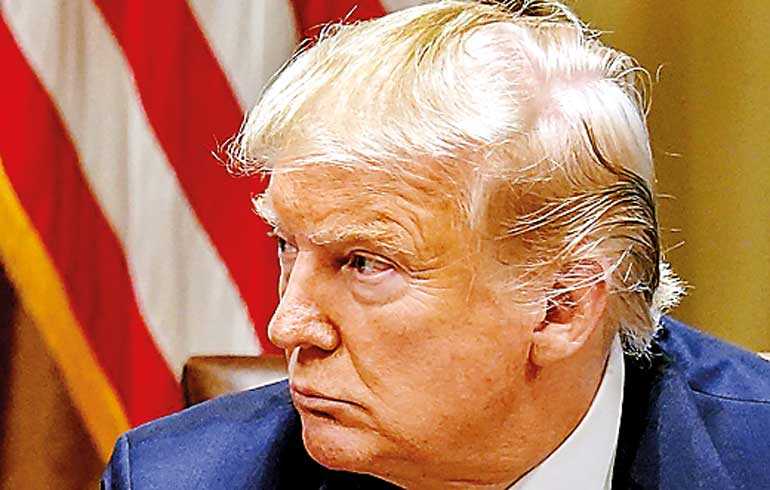Thursday Feb 19, 2026
Thursday Feb 19, 2026
Wednesday, 18 December 2019 01:18 - - {{hitsCtrl.values.hits}}

Washington (Reuters): Republican Donald Trump is this week likely to become the third US president to be impeached when the Democratic-led House of Representatives votes on charges stemming from his effort to pressure Ukraine to investigate political rival Joe Biden.
Trump faces one charge of abusing his power by asking Ukraine to investigate Biden, a leading Democratic contender to oppose him in the 2020 US presidential election, and one of obstructing Congress’ investigation into the matter.
The President has denied wrongdoing and accused Democrats of a baseless and politically-motivated bid to oust him from power.
The House is likely to take up impeachment on Wednesday, setting the stage for a vote this week on whether to approve the charges and send the matter to the Republican-led Senate to hold a trial on whether to remove Trump from office.
Democrats, who enjoy a 36-seat majority in the House, are expected to win an impeachment vote, which requires a simple majority.
Republicans hold 53 of the 100 seats in the Senate, where they appear likely to prevail in any trial against Trump, which would require a two-thirds majority of those present to remove him from office.
Seeking to shape any trial, Senate Democratic leader Chuck Schumer called on Sunday for testimony from White House acting Chief of Staff Mick Mulvaney, former national security adviser John Bolton, Mulvaney aide Robert Blair and budget official Michael Duffey. Schumer made his appeal in a letter to Republican Senate Majority Leader Mitch McConnell, who said last week he was coordinating with the White House and has raised the prospect of a short impeachment trial in which no witnesses would be called.
House Democrats also sought testimony from the four men in their inquiry, but they did not appear.
The House Judiciary Committee voted 23-17 on Friday along party lines to approve the two charges against Trump and to send the matter to the full chamber. Late on Sunday, the panel issued its full report detailing the case against him. No US president has been removed as a direct result of impeachment.
Richard Nixon resigned in 1974 before he could be removed, while Andrew Johnson and Bill Clinton were impeached by the House, respectively in 1868 and 1998, but not convicted by the Senate.
Senior House Democrats expect to win any impeachment vote, albeit with the possibility of some defections from moderates facing tough re-elections next year in Trump-leaning districts.